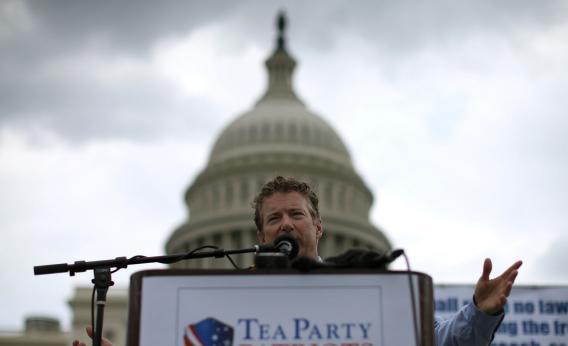I’ve been in a long and winding multi-front Twitter exchange over the question of Senator Rand Paul and race. The specific impetus was my assertion that Paul’s opinion that democracy “gave us Jim Crow” relates to his white supremacist inclinations. Inclinations that I think are evidenced by, for example, his previous stated opposition to key provisions of the Civil Rights Act. That prompted a debate with some competing strands of conservative punditry, with Charles C.W. Cook taking the view that Paul is right and the Civil Rights Act is bad while David Freddoso thinks that the Civil Rights Act is good but associating Civil Rights Act opponents with racism is slander.
So to return to the beginning, there’s no plausible meaning of “democracy” in which democracy gave us Jim Crow.
Even if you take democracy to relatively narrowly mean majoritarian voting procedures this doesn’t work. In the periods between the Civil War and World War II, African-Americans were a majority in quite a few southern states and would have been a large—and potentially decisive—voting bloc in the others. If, that is, they were allowed to vote. But instead of voting, African-Americans were disenfranchised via a systematic campaign of terrorist violence. The same campaign that gave us the Jim Crow social system. The point of the Civil Rights Act, including its provisions regulating private businesses, was to smash that social system. And it succeeded. It succeeded enormously. The amazing thing about retrospective opposition to the Civil Rights Act is that we know that it worked. It didn’t lead to social and economic cataclism. In fact, the American south has done quite a bit better since the smashing of white supremacy than it was doing previously.
I think the Cook/Paul view that we should somehow regret this and pretend that everything would have worked itself out on its own is bizarre.
But it’s not only bizarre. It seems to me that it necessarily has to stem from not taking the interests and history of African-Americans seriously to even be comprehensible. The “respectable” thing to say about people like Paul or the late Barry Goldwater, I suppose, is simply that they are ideologues rather than people driven by some kind of racial animosity. But I think it’s selling free market ideology short to suggest that government regulations meant to undue the outcome of a century long campaign of terrorist violence is just a straightforward consequence of a general support for free enterprise. You need to combine that ideology with a sincere indifference to black people’s welfare to reach that conclusion, just as you need to combine Paul’s ideology with genuine indifference to the history of race in America to reach Paul’s conclusion about democracy’s relationship to Jim Crow.
